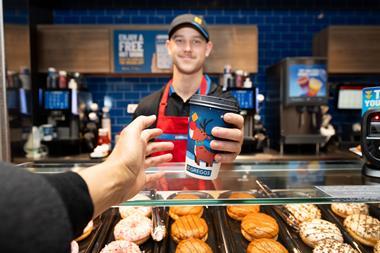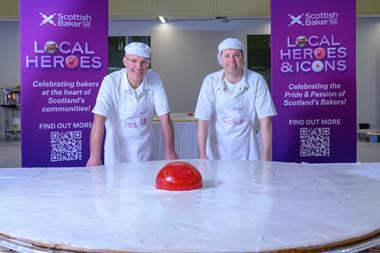Last year cake sales grew at the fastest rate since 2011, with the market estimated to have grown by 3% to reach £1.22bn, according to research by analyst Mintel.
The research was carried out by Mintel to coincide with National Afternoon Tea Week (8-14 August). Sales of celebration cakes are estimated to have reached £204m in 2015, up by 19% from sales of £172m in 2013. Sales of large cakes rose by 5% from £267m in 2013 to an estimated £280m in 2015.
The research showed 80% of Brits eat cake, and 51% of cake eaters said they eat it as a mid-afternoon snack – 28% eat cake after dinner and 25% have cake as a mid-morning snack. Six per cent of cake eaters said they ate cake for breakfast, which rose to 14% of those aged between 20 and 24.
Emma Clifford, senior food and drink analyst at Mintel, said: “The cake market has not floundered amid the heightened concerns about sugar.”
But she added there were opportunities for operators to explore healthier formulations, as there was “a significant unmet demand”.
Clifford said: “In this context, superfood ingredients, including ancient grains, coconut oil and vegetables, can play an important role. These can tap into the current focus on positive nutrition. Alternatives to refined white sugar can also boost perceived health credentials. This offers an alternative to moving to low-sugar formulations, which pose significant challenges for cakes.”
In future consumers want healthier options on the cake stand – 80% of cake buyers said they’d be interested in buying cakes made with alternatives to refined sugar, such as honey, molasses or agave syrup. Seventy-three per cent would be interested in cakes that use calorie-free natural sweeteners, and 71% wanted to see cakes made with coconut oil instead of butter.
In June Mintel found biscuit sales had remained strong despite health concerns around sugar.
































No comments yet